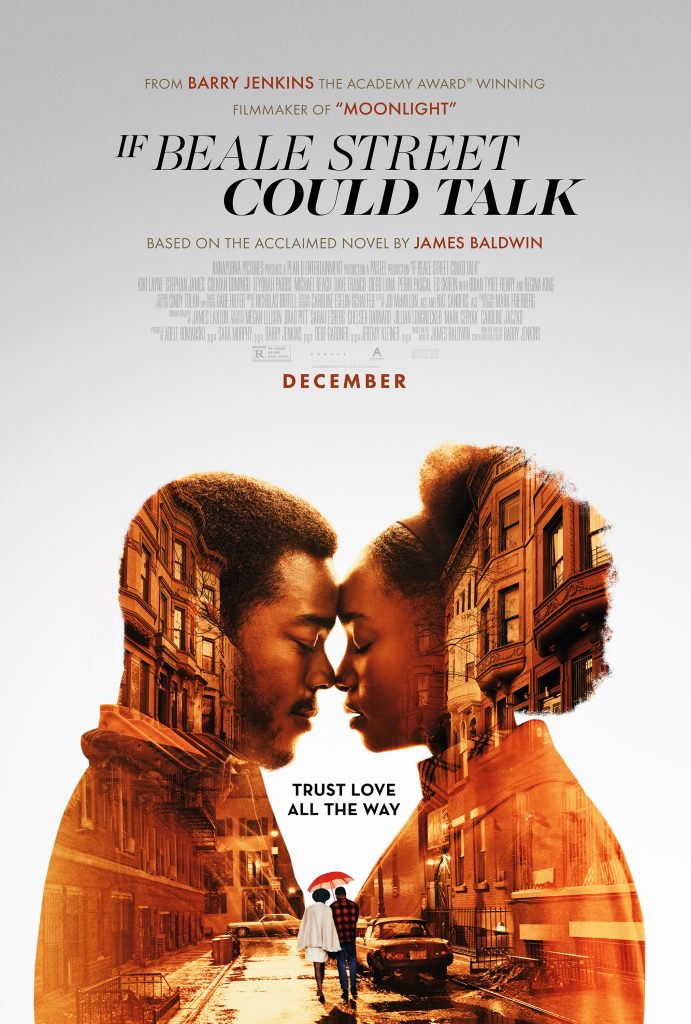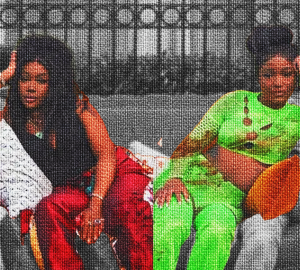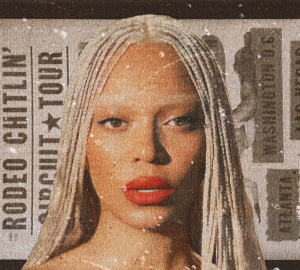Bringing James Baldwin to the big screen, an interview with the people behind ‘If Beale Street Could Talk’

One of this year’s most anticipated films, “If Beale Street Could Talk,” the newest film by acclaimed director Barry Jenkins, is just around the corner. After directing 2016’s Academy Award Best Picture winner “Moonlight,” Jenkins decided to go into new territory and make the first film adaptation of a James Baldwin novel, a highly ambitious undertaking to say the least.
However, with acclaim coming in from critics all over, it’s easy to assume that Jenkins was up to the job. The Connector got the chance to sit down and talk with both him and two of the film’s stars, Kiki Layne who plays the main character Tish, and Colman Domingo, who plays her father in the film, Joseph Rivers.
Layne and Domingo
The Connector: For Mr. Domingo, you’ve starred in a number of very well known films with some acclaimed directors such as Steven Spielberg, Ava DuVernay and Spike Lee, and now one of the most acclaimed directors of modern days, Barry Jenkins. How has his style differed in pushing you as an actor and a storyteller?
Domingo: All of these directors have something in common in why they are at the height of their artistry. They all have a sense of vision and generosity to be honest. Spielberg is one of the most generous directors I have ever worked with — kind, funny, warm. Same with Ava, she would embrace and hug every actor everyday, throughout all 40 days on “Selma.” And then Spike is like a basketball coach, like “Colman you gonna be able to do that today?” and I’ll be like, “Yeah I got this, I got this.”
Then you get to someone like Barry Jenkins. He’s a very graceful, gentle director. He has a wicked sense of humor, but he leaves the room with somewhat of a quiet grace. And this film didn’t have a crazy budget or things like that — it was very, very modest. But the way he led it, it never felt like we went without — that’s what Barry makes you feel like. You felt like you were so cared for and so respected that you could just do the work that you need to do. I feel like I’ve done some of my best work in cinema in a long time because of the foundation that Barry built for us.
The Connector: For Ms. Layne, this is one of the first bigger projects you were involved in, so where would you like to see your creative career go as a result of this film?
Layne: Well, ultimately the goals for my career is just as much variety and versatility as possibly. Will Smith is the actor I look up to the most because, to me, he represents the kind of actor who’s done it all — different characters, different genres, different worlds. So I’m thankful that my first film is something as special as “Beale Street” and I’m following it up with “Native Son,” so I think that’s letting the industry know the type of stories that are important to me and that I’m not afraid of telling. Some people may be afraid of doing two adaptations back-to-back, so I’m grateful that the industry will recognize that’s what I love and care about.
The Connector: What scenes do you guys recall that pushed your acting capabilities on this project?
Domingo: I think the entire project pushes you in a way. Just the weight of doing “Beale Street,” the first ever adaptation of a James Baldwin novel, already, the bar is set and you can only rise to the occasion of James Baldwin. We all did so much research, looking at photographs and listening to music from the period — getting so much underneath our skin so that we were ready. I honestly feel like there were no challenges we didn’t meet, I feel like everyone was ready. And again, it starts from the top — it starts with Barry, it starts with Annapurna, they set us up to do well and when that happens, you feel like you can lean into it.
Barry Jenkins
The Connector: Something that has always been appealing in your work is the visual presence you’re seeing on screen with the production design, lighting and cinematography — it all seems like poetry. How do you approach such visuals in your film in propelling the narrative and engaging the audience?
Jenkins: It’s tricky. It’s almost like a PlayStation cheat code right now, because the last film was adapted from Tarell Alvin McCraney, who’s an accomplished genius, and this book is James Baldwin, who’s also a genius, and the next book will be Colson Whitehead, another accomplished genius, so it’s kinda like cheating in its own way. But it goes back to my first experiences as a filmmaker — I went to Florida State University and when I started there, I was one of only five black kids and all of us were from different backgrounds. And back then, there was no digital, it was all done on film and I felt like my voice wasn’t reaching the screen because I didn’t know how to make images. So the visual aspect of filmmaking from the very beginning was very, very important to me because if I didn’t master that side of the medium, then the things I wanted to say would get lost in translation. So when James [Laxton], my cinematographer, and I were constructing the look and aesthetic of the film, to me it’s as — if not more — important than the story because you’re watching this and not reading it.
The Connector: The way in which you were able to fully immerse the audience in these characters with these amazing straight on shots where the actors would look right into the camera works wonders on screen. What goes through your mind as a director when crafting these shots?
Jenkins: It’s not the most difficult thing that we do, part of it is because I don’t know where they’re going to go after we film them and because of that, I don’t place any expectations on them. They’re not planned, I don’t know when we’re going to do them and neither do the actors. For me, acting is not documentary and even when the actors are very good, there’s still some distance between the actor and the character — it’s a performance, it’s intellectual. But then there are times when the actors go into a meditative state and that distance disappears and at that point, I want the audience to look at them directly in the eye because the eyes are the window to the soul. I want the audience to get a direct look in the eyes and actually empathize with the characters.
The Connector: There are very many filmmakers who attending our campus who are very ambitious to get into these kind of projects, especially after being inspired by films such as this. What is something you would NOT recommend to people who want to go out there and tell stories such as this when starting out?
Jenkins: When starting out, don’t do anything that you won’t believe in. Having a moral compass is very important, when you begin to make work, it can be very seductive. I feel like I’m in a very privileged position, I’ve written this before the Oscars, so I didn’t have the question of what I’m going to do next because there are some very lucrative things I could have done next. So I think the best thing for people starting out is to not do things you find morally compromising, just don’t. It may seem like it’s nothing, but psychologically, those things stick with you. So I think focusing on work you believe in at the early going is the most important and working with people who’s trust you feel like you have and who’s trust you can give to them.
Be sure to see “If Beale Street Could Talk” this December 25, Christmas Day.




























